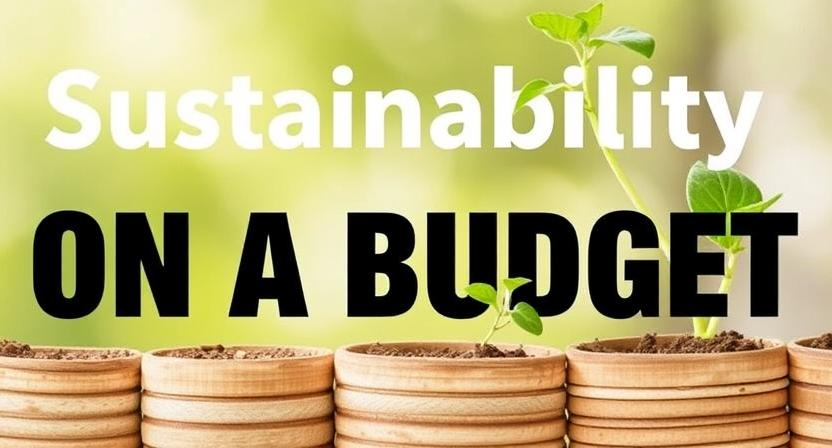The Reduction of Greenhouse Gas Emissions

Greenhouse gas emissions, primarily carbon dioxide and methane, are major contributors to global climate change. With the increasing awareness of the detrimental effects of these emissions on the environment, the need for reduction has become a pressing concern worldwide. Implementing strategies to lower greenhouse gas emissions is crucial in mitigating the impacts of climate change and creating a more sustainable future for generations to come.
Transitioning to renewable energy sources, improving energy efficiency in industries and transport, and enhancing waste management practices are key initiatives that can significantly reduce greenhouse gas emissions. By adopting sustainable practices and investing in clean technologies, countries can work towards achieving their emission reduction targets set out in international agreements like the Paris Agreement. Taking action to curb greenhouse gas emissions not only benefits the environment but also fosters economic growth and social well-being, highlighting the importance of concerted efforts in addressing this global challenge.
Improved Soil Health

Soil health plays a crucial role in maintaining the sustainability of ecosystems and supporting agricultural productivity. When soil is well-nourished and in balance, it provides a stable foundation for plant growth and development. Healthy soil is rich in essential nutrients, microorganisms, and organic matter, which support the vitality of plants and contribute to overall ecosystem resilience. By prioritizing practices that enhance soil health, such as composting, cover cropping, and reduced tillage, farmers and gardeners can foster a thriving environment for crops to thrive.
Additionally, improved soil health can help mitigate the impacts of erosion, nutrient depletion, and water pollution. By enhancing the structure and fertility of the soil, it increases its capacity to retain water, nutrients, and carbon, reducing the risk of runoff and erosion. Healthy soil also promotes the recycling of nutrients and fosters beneficial microbial activity, supporting plant growth while minimizing the need for synthetic inputs. Overall, investing in soil health not only benefits agricultural production but also contributes to the overall health and sustainability of our environment.
Decreased Landfill Waste

Decreased landfill waste is a critical aspect of sustainable waste management practices. By diverting organic materials and recyclables from landfills, we can minimize the burden on these sites and prolong their lifespan. Implementing effective waste reduction strategies not only benefits the environment by reducing greenhouse gas emissions produced by decomposing waste but also conserves valuable resources that would otherwise be lost in landfills.
Furthermore, decreasing landfill waste promotes a more circular economy where materials are reused, recycled, or composted instead of being disposed of as trash. This shift towards a more sustainable approach to waste management not only reduces the strain on our landfills but also contributes to the conservation of natural resources and supports a more environmentally friendly way of living.
Conservation of Water Resources

One crucial aspect of sustainable practices in agriculture is the conservation of water resources. With the increasing global demand for food production, the efficient use of water is essential for both current and future generations. By implementing water-saving techniques such as drip irrigation, rainwater harvesting, and soil moisture monitoring, farmers can significantly reduce water wastage and promote the long-term health of ecosystems.
The conservation of water resources not only benefits agricultural operations but also plays a vital role in ensuring clean and accessible water for communities and wildlife. By prioritizing water conservation in farming practices, we can help mitigate the effects of water scarcity and drought, safeguarding the availability of this precious resource for all living beings. Whether through optimizing irrigation systems or adopting water-efficient crop varieties, every effort in conserving water contributes to a more sustainable and resilient agricultural sector.
Promotion of Biodiversity

Promotion of biodiversity within agricultural systems is crucial for maintaining a healthy and resilient ecosystem. By incorporating a variety of plant species and creating habitats for beneficial insects and wildlife, farmers can support a balanced and diverse environment. This diversity not only enhances the overall stability of the ecosystem but also contributes to natural pest control, pollination, and soil health.
Furthermore, promoting biodiversity in agriculture helps to preserve native plant species and genetic diversity, which is essential for adapting to changing environmental conditions. By cultivating a rich tapestry of plants, farmers can create a more sustainable and productive system that is less vulnerable to pests, diseases, and climate fluctuations. Ultimately, the promotion of biodiversity in agriculture is essential for safeguarding the long-term health and productivity of our food systems.
Nutrient-Rich Soil for Gardening

Gardening enthusiasts are often eager to cultivate lush and healthy plants in nutrient-rich soil. A key aspect of successful gardening lies in the soil’s ability to provide essential nutrients for plant growth, resulting in vibrant flowers, luscious fruits, and hearty vegetables. By focusing on cultivating nutrient-rich soil, gardeners can foster a thriving ecosystem where plants can flourish to their full potential.
Maintaining nutrient-rich soil involves a strategic approach that includes incorporating organic matter, such as compost and mulch, to enhance the soil’s fertility levels. This holistic practice not only benefits the immediate plant growth but also supports the long-term health of the soil by promoting beneficial microbial activity and maintaining a balanced nutrient profile. With nutrient-rich soil as the foundation, gardeners can cultivate bountiful harvests while contributing to the overall environmental health of their gardening spaces.
Reduction of Chemical Fertilizer Use

By reducing the dependency on chemical fertilizers in agriculture, farmers can promote healthier soil and ecosystems within their farming practices. This shift allows for a more balanced and sustainable approach to nutrient management, benefiting both the environment and the long-term productivity of the land. By incorporating organic matter and natural fertilizers into their cultivation methods, farmers can enhance soil fertility and structure, leading to improved crop yields and overall ecosystem health.
Furthermore, decreasing the reliance on chemical fertilizers can help mitigate environmental risks associated with nutrient runoff and water pollution. The reduction of chemical inputs minimizes the potential for groundwater contamination and adverse effects on aquatic ecosystems. By adopting alternative fertilization methods, such as composting and cover cropping, farmers can uphold environmental stewardship principles and contribute to the conservation of water resources for future generations.
Decreased Need for Pesticides

The implementation of sustainable agricultural practices emphasizes the necessity to reduce the dependency on pesticides. By adopting integrated pest management strategies, farmers can effectively control pests while minimizing the use of harmful chemicals. This approach focuses on employing a combination of biological, cultural, and mechanical controls to manage pest populations, thereby decreasing the reliance on synthetic pesticides.
Furthermore, decreasing the need for pesticides not only benefits the environment but also promotes the health of farm workers and consumers. Pesticides have been linked to various health concerns, including respiratory issues, skin irritations, and potential long-term effects on human health. By shifting towards more sustainable and eco-friendly pest management methods, agricultural systems can safeguard the well-being of individuals involved in the production process and enhance the overall safety of food products for consumers.
Support for Local Ecosystems

Local ecosystems play a vital role in maintaining the balance of nature within a specific region. By adopting sustainable practices and minimizing environmental impact, individuals and communities can contribute to the preservation and enhancement of these ecosystems. This, in turn, supports the diverse array of plant and animal species that rely on these habitats for their survival.
Through initiatives such as organic farming, reforestation projects, and wildlife conservation efforts, local ecosystems can thrive and continue to provide essential ecosystem services. These services include air and water purification, pollination, nutrient cycling, and pest control, all of which are crucial for the overall health and resilience of the environment.
Contribution to Climate Change Mitigation

Climate change is a pressing issue that requires immediate action. By implementing sustainable agricultural practices, we can play a crucial role in mitigating climate change. These practices can help decrease greenhouse gas emissions, preserve soil health, and conserve water resources, ultimately contributing to a healthier environment for future generations.
Sustainable agriculture also involves reducing the reliance on chemical fertilizers and pesticides, which can have harmful effects on the environment and contribute to climate change. By promoting biodiversity and supporting local ecosystems, we can create a more resilient and sustainable food system that is better equipped to withstand the impacts of a changing climate.
Creation of Sustainable Practices

Sustainable practices in agriculture have become increasingly important in the global effort to combat climate change and preserve natural resources. By implementing sustainable methods such as crop rotation, cover cropping, and composting, farmers can significantly reduce their environmental impact while promoting long-term soil health. These practices not only benefit the environment but also contribute to the economic viability of farms by minimizing input costs and improving overall productivity.
Furthermore, the adoption of sustainable practices goes beyond individual farms, serving as a model for the entire agricultural industry to shift towards more environmentally friendly methods. As more farmers embrace sustainable agriculture, we move closer to a future where food production is in harmony with the natural world, ensuring a healthier planet for current and future generations.
Positive Impact on Food Security

One essential aspect of sustainable agriculture is its positive impact on food security. By implementing regenerative practices that focus on enriching the soil and promoting biodiversity, farmers can enhance the productivity and resilience of their crops. This leads to a more reliable food supply, ensuring that communities have access to nutritious food year-round.
Furthermore, sustainable agriculture fosters diversity in food production, which can help in addressing issues of food scarcity and malnutrition. By growing a variety of crops and promoting local food systems, communities are less reliant on a single crop or heavily processed foods. This approach not only contributes to food security but also supports the overall health and well-being of individuals.
Encouragement of Circular Economy

Engagement in a circular economy system entails rethinking traditional linear production models. This approach emphasizes the importance of reducing waste and promoting the reuse and recycling of resources. By encouraging the circular economy, businesses and individuals can contribute to a more sustainable and efficient use of materials, ultimately leading to a reduced environmental impact and a more resilient economy.
The principles of a circular economy prioritize the longevity and usability of products and materials through innovative design and resource management strategies. Embracing this concept can lead to decreased resource depletion, minimized energy consumption, and a significant reduction in greenhouse gas emissions. Ultimately, by fostering a circular economy mindset, society can move towards a more regenerative and prosperous future with a positive impact on both the environment and the economy.
Lessening of Food Waste

A significant concern in today’s food system is the amount of food waste generated at various stages of production, distribution, and consumption. This wastage not only squanders valuable resources such as water and energy but also contributes to greenhouse gas emissions and impacts overall sustainability. By implementing practices to reduce food waste, individuals, businesses, and communities can work towards a more efficient, environmentally-friendly food system.
Strategies such as proper meal planning, utilizing leftovers, redistributing surplus food to those in need, and composting organic waste can all play a role in lessening food waste. By raising awareness, improving logistics, and promoting mindful consumption habits, we can collectively make a significant impact on reducing the amount of food that ends up in landfills. Moreover, by considering the entire lifecycle of food production and consumption, we can work towards a more sustainable and resource-efficient food system for the benefit of both people and the planet.
Contribution to Sustainable Agriculture

Sustainable agriculture practices play a crucial role in ensuring the long-term viability of our food production systems. By incorporating methods that prioritize environmental health, biodiversity, and resource conservation, farmers can minimize the negative impact on the land while maximizing productivity. Techniques such as crop rotation, cover cropping, and integrated pest management not only improve soil quality and preserve water resources but also reduce the reliance on chemical inputs, leading to healthier ecosystems and resilient agricultural systems.
Furthermore, sustainable agriculture fosters a holistic approach to farming that considers the interconnectedness of the environment, economy, and society. By embracing regenerative practices that nurture the soil, support pollinators, and promote natural pest management, farmers can mitigate the effects of climate change and contribute to a more sustainable future for agriculture. This shift towards sustainable farming not only benefits farmers and their communities but also plays a vital role in safeguarding the health of the planet for future generations.
Engagement in Environmental Stewardship

Taking part in environmental stewardship involves making conscious decisions that prioritize the well-being of the planet. By actively engaging in activities that protect and preserve the environment, individuals can help maintain the balance of ecosystems and work towards a sustainable future. This can range from participating in community clean-up events to supporting initiatives that promote conservation and sustainability.
Through environmental stewardship, individuals can play a critical role in safeguarding the natural resources that are vital for the health of the planet. By being mindful of their consumption habits and reducing waste, individuals can contribute to the overall well-being of the environment. Engaging in environmental stewardship is not only beneficial for the planet but also serves as a way for individuals to take responsibility for their impact on the environment and become advocates for positive change.
Support for Community Sustainability Efforts

Community sustainability efforts play a crucial role in fostering a resilient and thriving environment for present and future generations. By engaging in collaborative initiatives that prioritize the well-being of both people and the planet, communities can work towards building a more sustainable future. Through collective action and shared responsibility, communities can address pressing environmental challenges and create lasting positive impacts on local ecosystems.
Community sustainability efforts encompass a wide range of initiatives, from promoting sustainable practices in daily life to implementing green infrastructure projects that enhance environmental quality. By coming together to support these efforts, communities can create a ripple effect that spreads awareness, inspires action, and drives meaningful change. Through partnership and collaboration, individuals and organizations can amplify their impact and contribute to a more sustainable and equitable world for all.
Promotion of Environmental Education

Environmental education is a powerful tool that equips individuals with the knowledge and skills needed to understand and address complex environmental issues. By integrating environmental education into formal and informal learning environments, individuals are empowered to make informed decisions that promote sustainability and conservation. This education fosters a sense of environmental responsibility and encourages active participation in environmental stewardship initiatives.
Moreover, promoting environmental education helps cultivate a deeper appreciation for the natural world and the interconnectedness of all living organisms. Through hands-on learning experiences and interactive activities, individuals gain a greater understanding of the importance of preserving our ecosystems and protecting our planet for future generations. Environmental education not only increases awareness of environmental challenges but also motivates individuals to take concrete actions to promote conservation and sustainable practices in their daily lives.
Empowerment of Individual Environmental Actions

Individuals play a crucial role in driving environmental change through their daily actions. By making conscientious decisions such as reducing single-use plastic usage, practicing energy conservation, and supporting local sustainable practices, people can significantly contribute to the preservation of our planet. Each small step taken by an individual collectively adds up to create a significant impact on the environment, empowering individuals to be agents of positive change in their communities.
Furthermore, the empowerment of individual environmental actions fosters a sense of responsibility and accountability towards the planet. When individuals take ownership of their impact on the environment, they become more mindful of their choices and strive to make choices that align with sustainability. This sense of empowerment can lead to a ripple effect, inspiring others to follow suit and creating a widespread movement towards environmental conservation and stewardship.
Enhancement of Overall Environmental Health

Promoting the health of our environment is essential for the well-being of our planet and all living organisms. By implementing sustainable agricultural practices, we can help to reduce pollution, conserve natural resources, and protect biodiversity. These efforts contribute to the overall health of our ecosystems and support a more balanced and resilient environment for future generations.
Additionally, engaging in environmental stewardship through sustainable agriculture practices fosters a sense of responsibility and care for our planet. By working together to cultivate healthy soils, reduce waste, and promote biodiversity, we can create a more sustainable and harmonious relationship with the environment. Through these actions, we not only enhance the health of our surroundings but also empower individuals to make a positive impact on the world around them.
• By implementing sustainable agricultural practices, we can reduce pollution and conserve natural resources
• Protecting biodiversity contributes to the overall health of ecosystems
• Engaging in environmental stewardship fosters a sense of responsibility and care for our planet
• Cultivating healthy soils, reducing waste, and promoting biodiversity create a more sustainable relationship with the environment
• Empowering individuals to make a positive impact on the world around them through environmental actions




